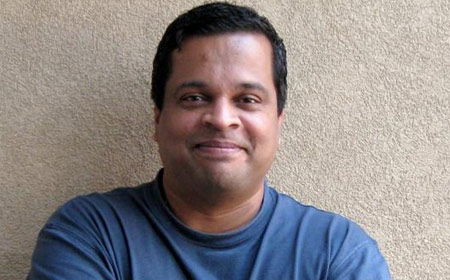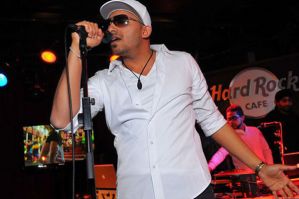Ravi Nair: "We welcome national players in FM Phase III"

Malayala Manorama's Radio Mango 91.9 was the first Malayalam private FM station in Kerala started in the year 2007. Since then, they have taken a long journey covering four cities of Kerala namely Kochi, Trissur, Kozhikode and Kannur. In a conversation with Radioandmusic.com, Radio Mango director programmes Ravi Nair discusses about station's new initiatives and how Mango still manages to entertain its listeners with dosage of popular music accompanied with light news or daily happenings.
Excerpts:
How has the journey been with Radio Mango?
It has been a very exciting and satisfying journey. We started as the first private FM station to launch in Kerala and set several milestones along the way like winning numerous national and international awards, entry in Limca book of records and more. We are still learning and improving day by day.
Where do you see national radio today?
Nationally radio is very vibrant and poised on the threshold a quantum leap in terms of reach post Phase III. There is still a major need for variety in content which should happen as and when the government increases the number of available frequencies in each city. Reducing the frequency gap from 800 Khz to 400 Khz would be a good step in this direction.
How has the southern market adapted to the new trends of music?
While new trends in music is readily adopted by radio stations especially when they come from films, in Kerala, the key driver for hit music is still the melody component.
What are the changing tastes of south Indian audience?
The major cities in South, especially category B cities are going cosmopolitan. Increased job opportunities driven by large scale investments have brought in a floating population from other states and giving an interesting mix of cultures and languages. This in turn has rubbed off on the local population that is becoming increasingly consumerist.
What kind of programming works well for Radio Mango?
We are a programming driven network. We take great pride in our out-of-the-box approach to most societal issues. We are very brand conscious and have never compromised on our values.
What are the new programs that you are working on currently?
More than new programmes, we are constantly tweaking our existing shows so that they remain fresh and consistent. Radio listening is a habit and listeners form a bond with the RJs and the shows. We need to keep our listeners happy by giving them their daily dose on a consistent and satisfying basis. Planning for new shows happen only when we feel that a certain show is becoming jaded or research shows a major drop in listenership for a show.
We are presently focusing on differentiating our station by our clean and uncluttered programming style. Our programming space is sacrosanct and very rarely do we provide entry of commercial elements into this sacred space. It is a major differentiator from our competitors.
‘Vellarikka Pattanam’ program has won the award for its content twice in IRF. What is special about the program?
This show hosted by Big B (not “The Big B”) and Murugan, has captured the imagination of our listeners in Kerala. Malayalees love satire and this show has consistently provided humour and biting sarcasm on a daily basis by taking on social and political issues in the manner of spoofed news.
Innovation and digital is seen as the future for radio.
I have always believed that radio will never die; only the vehicle of delivery will change. Internet radio is one such vehicle. At present it is still in its infancy given the lack of bandwidth available in smaller cities and towns. There is also the cost of data for internet radio while terrestrial radio is absolutely free.
As regards content differentiation, as I mentioned earlier, we need to have more frequencies available as well more conducive government policies with lower entry costs to make niche programming viable.
When the last time you bought a big change in programming and what was the change?
We have not had any major overhaul of our programming. After in depth research, we did reduce our music library to under a thousand songs. Our programming has been organic and has evolved over the last five years. We did create a more dynamic weekend programming since our studies showed that there is a sizeable weekend listenership for us and in percentage terms matches weekday listening.
How much per cent of investment do you put on programming and do you plan to increase it in coming years?
Bulk of our investment is in programming in terms of manpower, training, technology and research. We have reached an optimal level for our existing stations. We will look at our investments as and when we start up in new markets.
How often do you re-structure your programming based on feedbacks from audience?
We normally don't poll audience for inputs in our programming. Our music is definitely researched. We have done two AMT's in five years to fine tune our music. As regards our non-music content, we firmly believe that if you talk about things that matter to people in their day to day lives in an entertaining manner, they will listen.
How much experimental programming Radio Mango does?
Not experimental but more out-of-the-box programming is our forte. We have done this on a regular basis since inception. Our Children's day programming, re-creation of the 1983 world cup, reverse quiz etc. are some examples.
How much pressure does marketing and sales puts on the way programs are developed?
Like I mentioned before, we are a programming led station and we have been number one in our markets consistently for the last five years. The pressure therefore, comes on sales and marketing to monetize this.
Any ad hikes expected in the coming months?
Radio Mango is positioned as a premium station in our markets and as such we are priced well above competition. We have no plans of hiking rates in the immediate future.
Podcasting is also an option for radio; have you given it a thought for spreading your content around the world?
We have our non-music content including entire shows, put up on our website, Facebook and Youtube. These are hugely popular.
What is the future for innovation and content differentiation in Indian private FM radio industry?
More stations and more radio friendly legislation will see greater innovation and variety of content.
What would be the key opportunities and challenges for Mango with the arrival of national players in Kerala with FM Phase III?
We welcome the presence of national players in Phase III. More stations will help to extend the reach of radio overall. We seriously don't see national stations as a threat since we are already operating in competitive markets with strong competitors. We have also shown our mettle by winning several national and international level awards over the years.
Has Radio Mango planned its strategies for FM Phase III?
We would obviously consolidate our position in our home state. We would also consider some of the available frequencies outside Kerala. We will take the final call once the bids are announced.
Where do you see Radio Mango five years down the line?
We would like to see ourselves continue to be numero uno among all stations in our markets. We would also like to be present in the national scene.
What are the key targets set for Radio Mango?
We are trying to benchmark on some of the best stations internationally. Our key target is to continue to be number one in our existing markets and pose a serious challenge to competitors in new markets.














